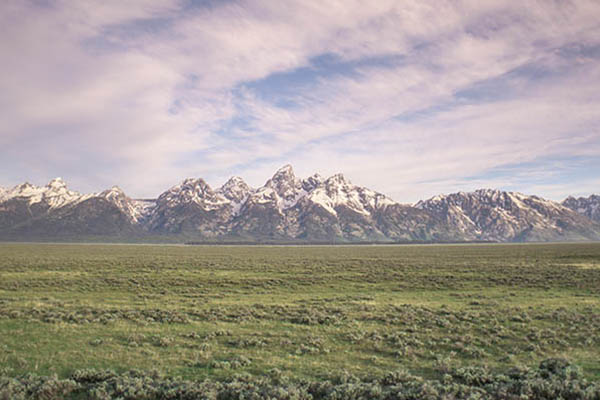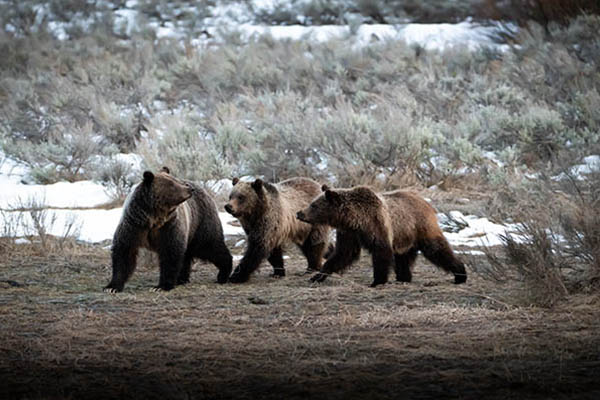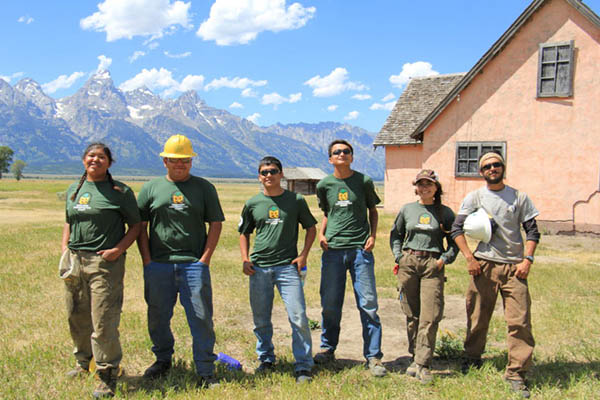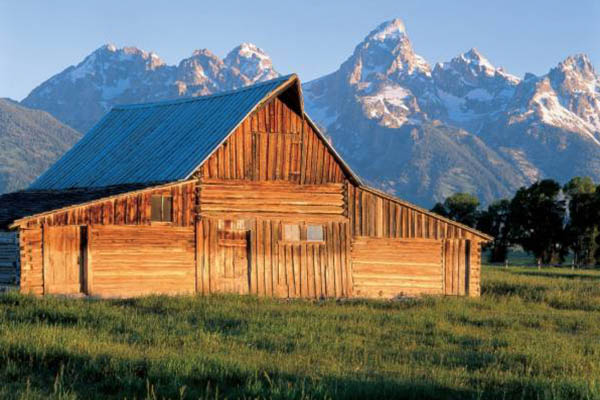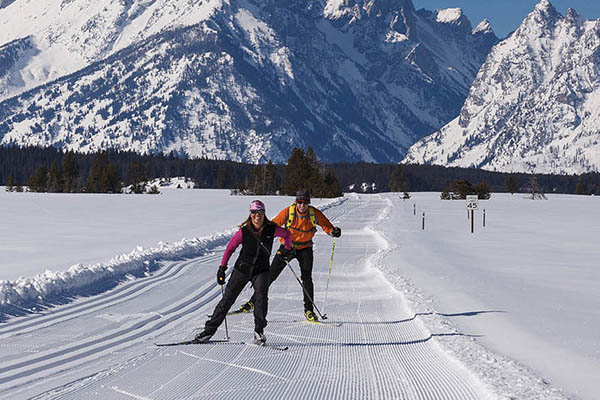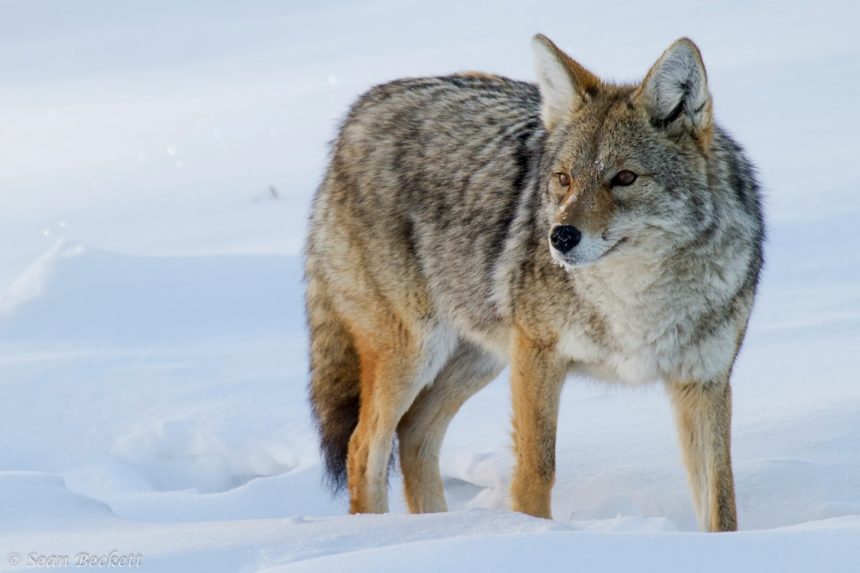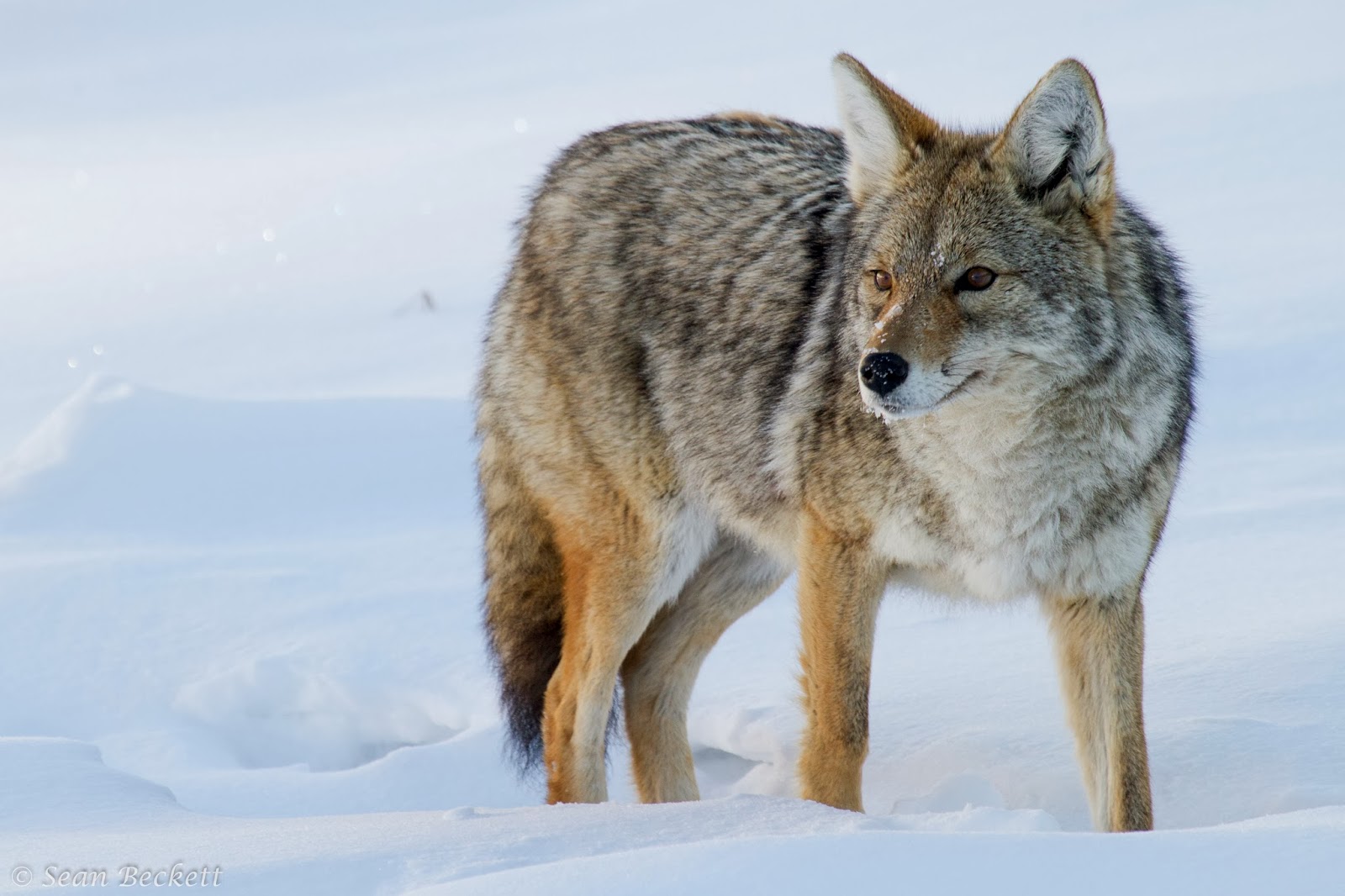
Photo by Sean Beckett
• Snowfall has been lower and temperatures higher than average so far this winter. Many bison and elk have responded by staying away from core winter ranges and remaining on spring/fall transitional ranges where adequate forage is still available.
• The ice on Jackson Lake has been variable so far this season due to the warmer than average temperatures. Ice engulfed most of the lake during the third week in December, but a two-day wind event at the end of the month opened the middle portion of the lake, from Sargents Bay to south of Colter Bay. This area refroze within a few days and ice is still growing there. Significant snowfall weighted the ice and caused widespread slush near the surface, particularly where ice was thinner.
• Hibernating animals, such as black and grizzly bears, benefit from a deeper snowpack, which provides better insulation.
• Bison use their massive heads, thick skin, and muscular necks to move snow from side to side, creating craters where they can access buried forage.
• As days gradually lengthen, ravens, bald eagles, and great horned owls—some of the area’s earliest nesters—begin courtship activities.
• Wolverines, Canada lynx, and wolves remain highly active, using large, snow-adapted feet to move through the environment.
• As snow depths increase, moose use their long legs to move through deep snow to areas of preferred forage. Moose calves remain with their mothers through the winter and follow closely behind as mom breaks trail through the snow. Moose also use their highly developed sense of smell to find only the most nutritious parts of shrubs under the snow.
• Like the mother moose and her offspring, wolves also travel in single file lines through deep snow for efficiency.
• Moose have begun congregating in areas where bitterbrush is abundant, such as the sagebrush flats near the Jackson Hole Airport and north of the town of Kelly.
• The American dipper, also known as the water ouzel, remains highly active all winter, seeking areas of open, moving water where they bob on rocks between dives for aquatic insects.
• Our cold water fish are supremely adapted to surviving winter, often under the ice for months at a time. Nevertheless, like other wildlife, winter is stressful for fish. Sport fishing opportunities in the park are limited during winter to help reduce undue stress on fish.
Please consider the space and energy conservation needs of wildlife during winter and do not approach them closely, even though they may appear unconcerned. In many cases, they simply have nowhere else to go until snow depths decrease.



